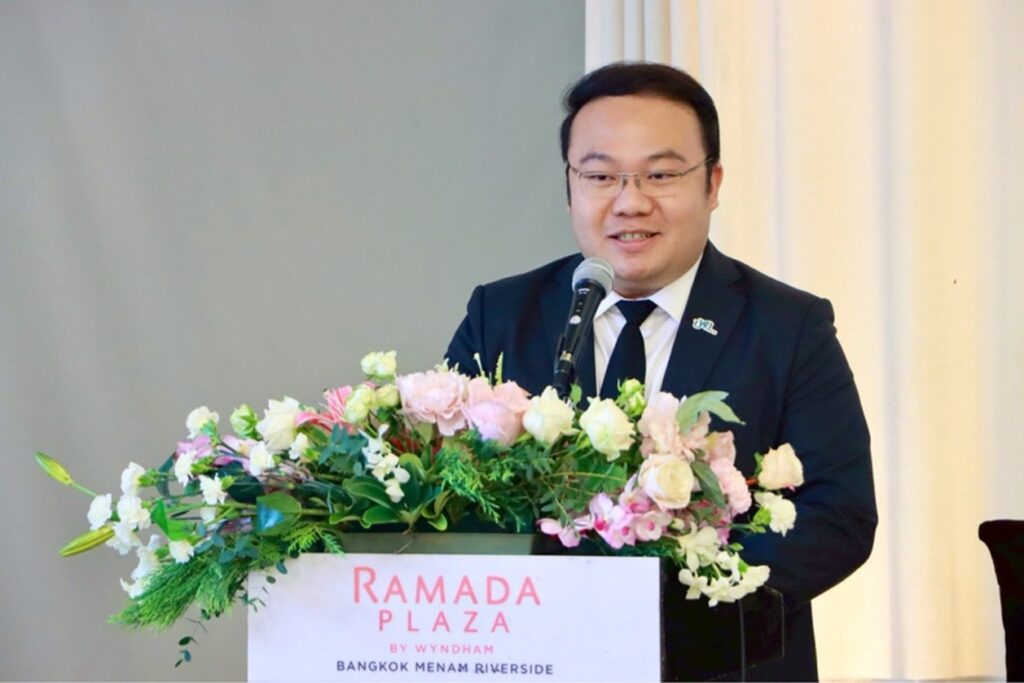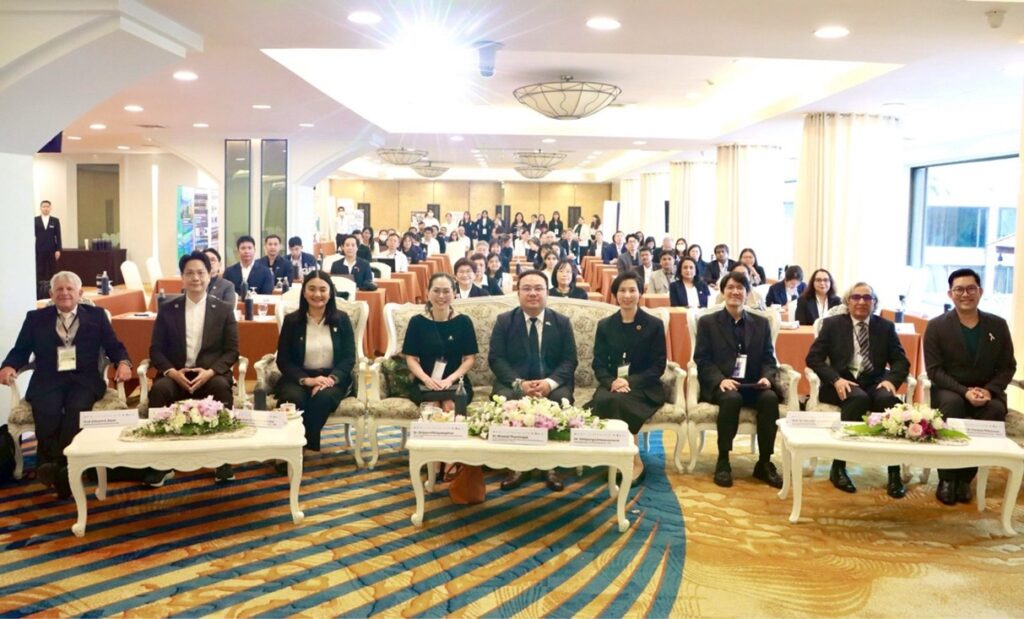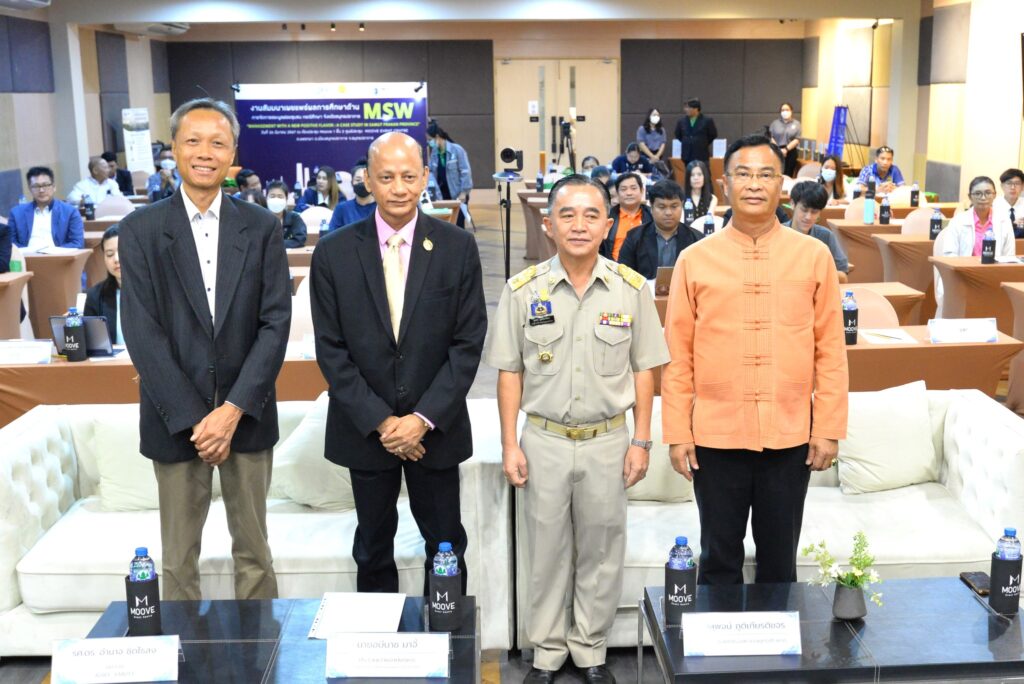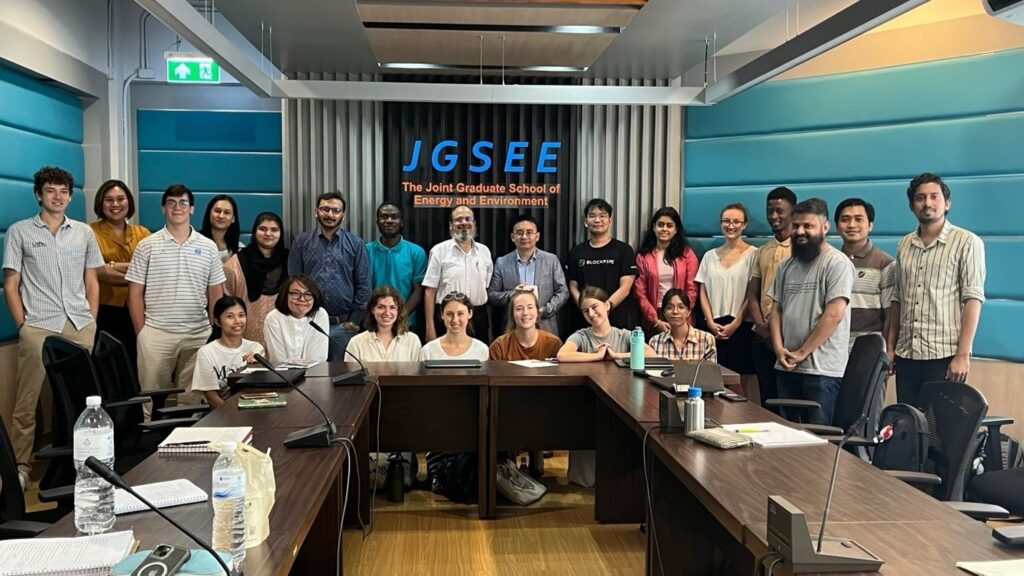The Synthetic Biology and Future Food Networking Forum and International Bioprocessing Association (IBA) Subject Conference 2025 took place at the Ramada Plaza by Wyndham Bangkok Menam Riverside from 5 to 7 November 2025. The event brought together leading scientists, innovators, and policymakers to explore how biotechnology can drive sustainable transformation in food, energy, and climate systems.
Co-organized by the Ministry of Higher Education, Science, Research and Innovation (MHESI) and King Mongkut’s University of Technology Thonburi (KMUTT) with funding from the Program Management Unit for Human Resources & Institutional Development, Research and Innovation (PMU-B) and support from several partners including Hub Net Zero, the forum served as a platform for knowledge exchange and collaboration.
Under the theme “Bio-Circular-Green (BCG) Innovation and Nature-Based Pathways to Net Zero,” the three-day gathering fostered dialogue across disciplines and inspired new partnerships toward building a sustainable bioeconomy.
The opening session began with welcoming remarks from Prof. Dr. Navadol Laosiripojana, Director of the Joint Graduate School of Sustainable Energy and Environment (JGSEE) of KMUTT and Coordinating Director of the Thailand Academy of Sciences (TAS). Prof. Navadol emphasized the vital role of synthetic biology and nature-based solutions in addressing global challenges — from food security and energy transition to climate change mitigation and adaptation.

This was followed by opening remarks and a policy address by Dr. Nirawat Thammajak, Director of PMU-B, who highlighted Thailand’s national research funding strategies supporting BCG innovation and the net zero transition. He underscored the strategic role of synthetic biology and advanced biotechnology in shaping a sustainable economy and enhancing industrial competitiveness.
Dr. Nirawat also spotlighted a flagship initiative — “Innovative Development of Microalgal Strains through Synthetic Biology for Enhanced Carbon Dioxide Capture and High-Value Compound Production, with Strategic Industrial Applications to Mitigate Greenhouse Gas Emissions in Thailand.” This project exemplifies how cutting-edge bioscience can deliver both environmental benefits and economic opportunities.


Further enriching the opening session were policy insights from Dr. Siriporn Pittayasophon, Vice President of the Office of National Higher Education Science Research and Innovation Policy Council (NXPO), who discussed national strategies for advancing synthetic biology and future food; and Asst. Prof. Dr. Sirinan Kulchat, Deputy Director of the SRI System Development Office at TSRI, who presented synthetic biology as a catalytic engine for Thai industries.


During the conference, Prof. Navadol, also serving as Hub Net Zero Manager, delivered a special talk titled “Bio-CCU via Synthetic Biology in Microalgae: A National Initiative under the TAS-PMU:B and Thai SynBio Consortium.” His presentation introduced the initiative aimed at unlocking the potential of microalgae for carbon capture and bioproduct manufacturing through three areas of innovation: engineering microalgae strains using synthetic biology to enhance CO₂ utilization and tolerance in challenging cultivation environments; developing sustainable cultivation systems with enhanced energy efficiency; and advancing biorefinery processes to produce high value bioproducts. With funding from PMU-B, the project is being implemented by a research consortium comprising KMUTT, Kasetsart University, the National Center for Genetic Engineering and Biotechnology (BIOTEC), Khon Kaen University, Naresuan University, and Mahidol University.
Across its four main tracks — Synthetic Biology & AI, Future Food & Protein Systems, Green Carbon & Lignin Applications, and Energy & Environmental Innovations — the conference featured keynote lectures, oral presentations, poster sessions, workshops, exhibitions, and networking opportunities.
By fostering cross-sectoral collaboration and global partnerships, the Synthetic Biology and Future Food Networking Forum and International Bioprocessing Association (IBA) Subject Conference 2025 underscored Thailand’s strong commitment in advancing synthetic biology as a cornerstone of sustainable innovation and the nation’s pathway toward a net zero future.

Photo credit: PMU-B Facebook


